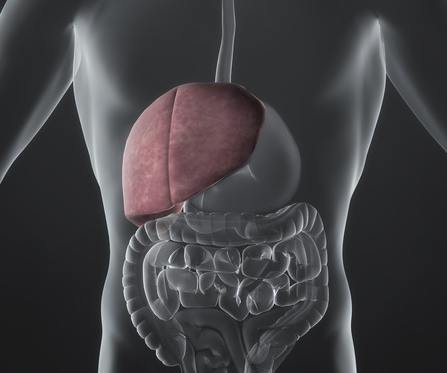[box]Millions of Americans suffer from Gluten intolerance, Gluten sensitivity or Celiac disease. However this may be the cause of a mineral deficiency rather than being Gluten intolerant. This wheat allergy is becoming more and more prevalent, however it may be because of a lack of nutrients and minerals in our diet rather than actually being allergic to wheat. Do you suffer from a Gluten Intolerance or Mineral Deficiency?[/box]
Zinc Deficiency and Gluten Sensitivity
One mineral that a majority of Americans are likely deficient in is Zinc. With most Americans consuming less that 10 mg’s of Zinc per day, this can have a significant impact on their health.
It is well known that those who suffer from a Gluten sensitivity or Celiacs disease have severe malabsorption. Making it almost impossible to meet their nutritional requirements through diet alone.
Gluten is believed to inhibit the small intestines ability to absorb nutrients like Zinc, which leads to a mineral deficiency. Whether the cause of your symptoms are the result of a mineral deficiency or the Gluten intolerance is exaggerated by the Zinc deficiency, it causes severe health conditions.
Zinc is vital for the healthy function of more than one hundred bodily enzymes, including enzymes that help regulate digestion.
[box]
Zinc is Essential For:
-
Healing of Wounds
-
Energy Metabolism
-
Hemoglobin Production
-
Protein Synthesis
-
Vitamin A Metabolism
-
Carbon Dioxide Transport
-
Prostaglandin Function
-
Collagen Synthesis
-
Male Fertility
-
Development of Fetus, Children and Adolescence
[/box]
Scientifically proven to act as a powerful healing agent for damaged mucosal lining, Zinc is essential for the healthy function of our digestive tract. This thin membrane is damaged when Gluten intolerant individuals are exposed to wheat and Gluten. Causing a severe inflammatory reaction and in turn the inability to absorb vital nutrients and mineral such as Zinc.
For those with a Gluten sensitivity issue, supplementing Zinc can have a profound benefit to aid the healing process and promote healthy digestion. Often times the Zinc deficiency is the cause of the Gluten intolerance in the first place.

Magnesium Deficiency and Gluten Intolerance
This is another extremely common mineral deficiency in the United States. Magnesium deficiency may play a role in Gluten intolerance and sensitivity. Widely known to improve bone health, nutrient absorption and required for the proper use of Vitamin D in the body. Magnesium is also vital for the health of our muscles, our nervous system and our metabolic system.
A myriad of illness’ may pop up because of a Magnesium deficiency, including a Gluten intolerance or sensitivity. Compounded by the inability to absorb Magnesium, further worsening symptoms.
Gluten Intolerance or Mineral Deficiency?
Many people with a Gluten intolerance are actually allergic to wheat, which causes their body to absorb far less nutrients, leaving them extremely vulnerable to developing nutrient deficiencies. For many others the Gluten sensitivity is brought on by the nutrient deficiency, in particular a deficiency in Zinc and Magnesium.
It is important to consult with your doctor or naturopath and get tested for a mineral deficiency. Then supplementing these minerals in order to combat the symptoms of Gluten sensitivity and improve overall health. You may not be allergic to Gluten, you may simply have a nutrient deficiency.
Leading Supplement with Zinc and Magnesium


Hi, my personal experience and beliefs/information are the following: The gluten in modern day wheat is not the same gluten from fifty or even twenty years ago. A new gluten has evolved in the cross breeding of the wheat, and many of us are simply no longer able to digest it. The body recognizes it as a foreign invader, and mounts an inflammatory response to try to rid ourselves of it. Eating a diet high in grains, produces an acidic state in the body, so the body then has to neutralize that high acid state by pulling minerals out of our bones, which it uses as a storehouse. Calcium, magnesium, and zinc are all stored in our bones. So eating grains / gluten depletes minerals in the body, creating a deficiency. Add to this the information I read yesterday that glyphosate (Round Up) acts as a mineral chelator. This means that any food grown with Round Up, absorbs the Round Up, and then we ingest it. Once ingested, the glyphosate binds to minerals and pulls them out of our body. Conventionally grown corn, canola oil, and soybeans are all GMO and grown to be sprayed with Round Up. So although those crops above do not contain gluten, they are all acting in our bodies to chelate out minerals. I removed from my diet wheat/gluten, GMO corn, canola, soybeans and soybean oil over one year ago. I eat a diet very high in green, magnesium-rich foods, including daily kale/spinach/broccoli, raw nuts and seeds and legumes like garbanzo beans and lentils. I no longer eat dairy or beef. Despite that diet being very high in magnesium and zinc-rich foods, I still find myself needing lots and lots of minerals. I have taken to generous use of himalayan sea salt and spray my body/skin daily with pure magnesium chloride for extra magnesium. My health? It is amazing. Everyone tells me how healthy I look. I feel great. Also, please be aware…. blood tests of your magnesium or other mineral levels do not tell the story. Less than 1% of our total magnesium is present in our blood. You can have bones and muscles seriously depleted of magnesium, and still score within normal ranges on a blood magnesium test. For me it is a little more simple. Listen to your body. If any of the above resonates with you, use the information. If your body craves chocolate, you have a magnesium deficiency. Chocolate is the world’s highest food source of magnesium, and we love it!, so the body tells us to eat our magnesium – knowing the message will get through! If you are getting more headaches, muscle twitches, leg cramps, fungus on nails, and feeling low energy, you very likely have a magnesium deficiency. I believe the changes in the earth’s frequency (it is increasing), are also changing our bodies and to keep up, we will need a lot more minerals in our diet. Eating foods that are GMO, sprayed with Round Up, and grown in mineral deficient soils are all part of the problem. Eating lots of animal products, processed foods and grains, or drinking sodas, all of which create an acidic state in the body, are all robbing our bodies of further minerals. Thanks for putting up this post. It is not my experience, though, that simply getting more minerals in your diet will allow you to once again resume eating gluten. Wonderful if you find this to work for you, but consider the fact that the glutens that are available today in wheat and barley are not the same gluten of the past. For interest sake, when I traveled to Italy last year, I ate their bread and pasta without adverse affects. Italy has been growing the same durham wheat for centuries and has not hybridized it as in the US. Sending blessings to everyone and wishing you vibrant health.
Thank you very much for this well thought out and presented reply. I totally agree with you, while supplementing these minerals is great for our health, it won’t necessarily remedy your gluten intolerance. However in some cases it will allow people who were thought to be gluten sensitive to eat it once again. However as you say, these wheat products are not good for our health and should always be eaten in moderation.
I think you are on to something here. I discovered this connection by accident and intuition. [I discovered my gluten intolerance by eliminating gluten and having zero body pain 2 days later.] In addition I have been dealing with muscle spasms which are helped by calcium and magnesium. So I supplemented with that and felt remarkably better and reduced the spasms considerably. For some reason, I guess because I felt so good, I tried eating a half of a dinner roll. I had absolutely no reaction over the next 24 hours. NO stomach discomfort, pain, achiness, etc.
I am not recommending that people with this condition start supplementing with cal/mag and then eat wheat. actually I think I am happier and better off avoiding it even if I can eat it without symptoms. but I do believe that this condition is probably and frequently misdiagnosed.